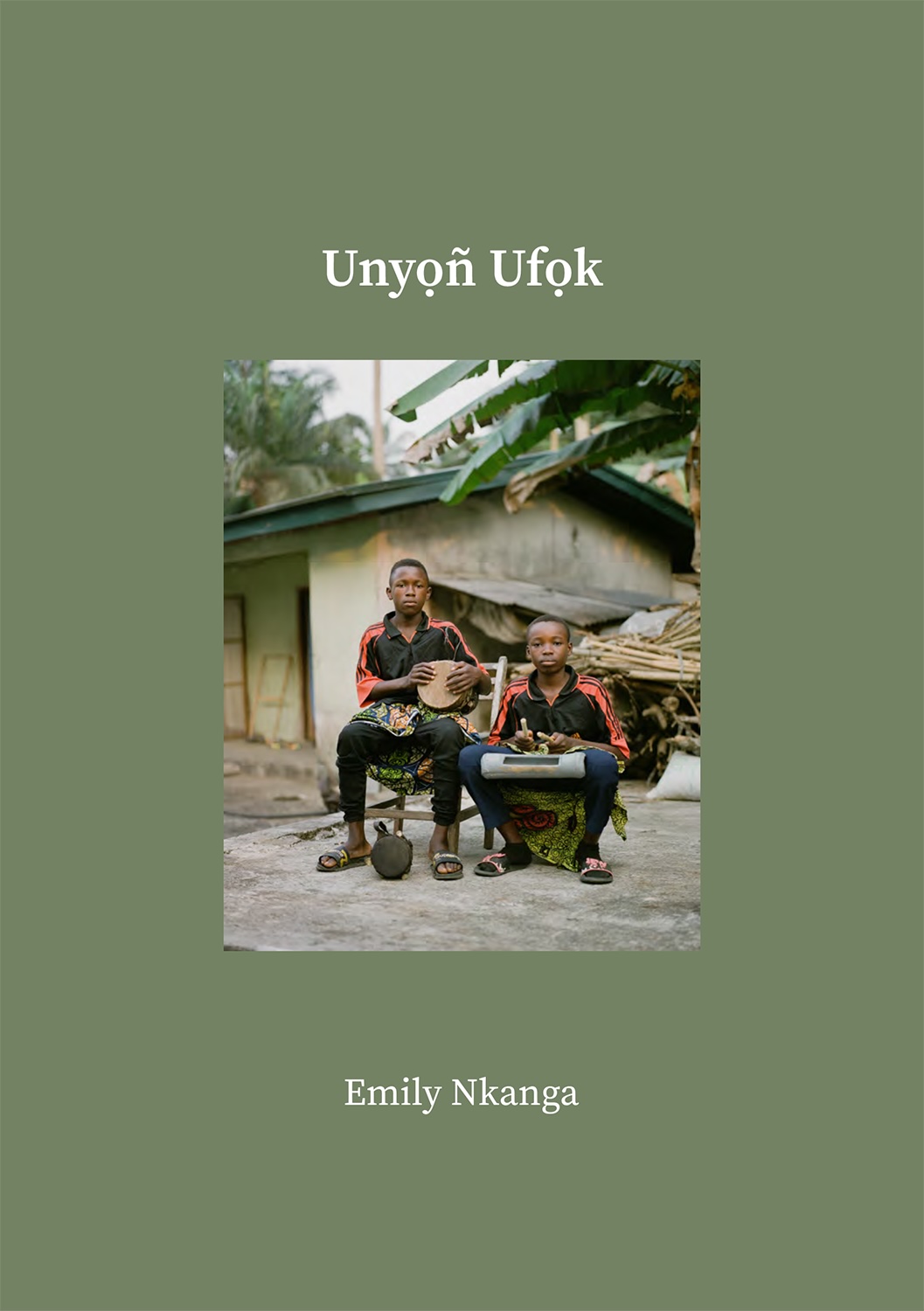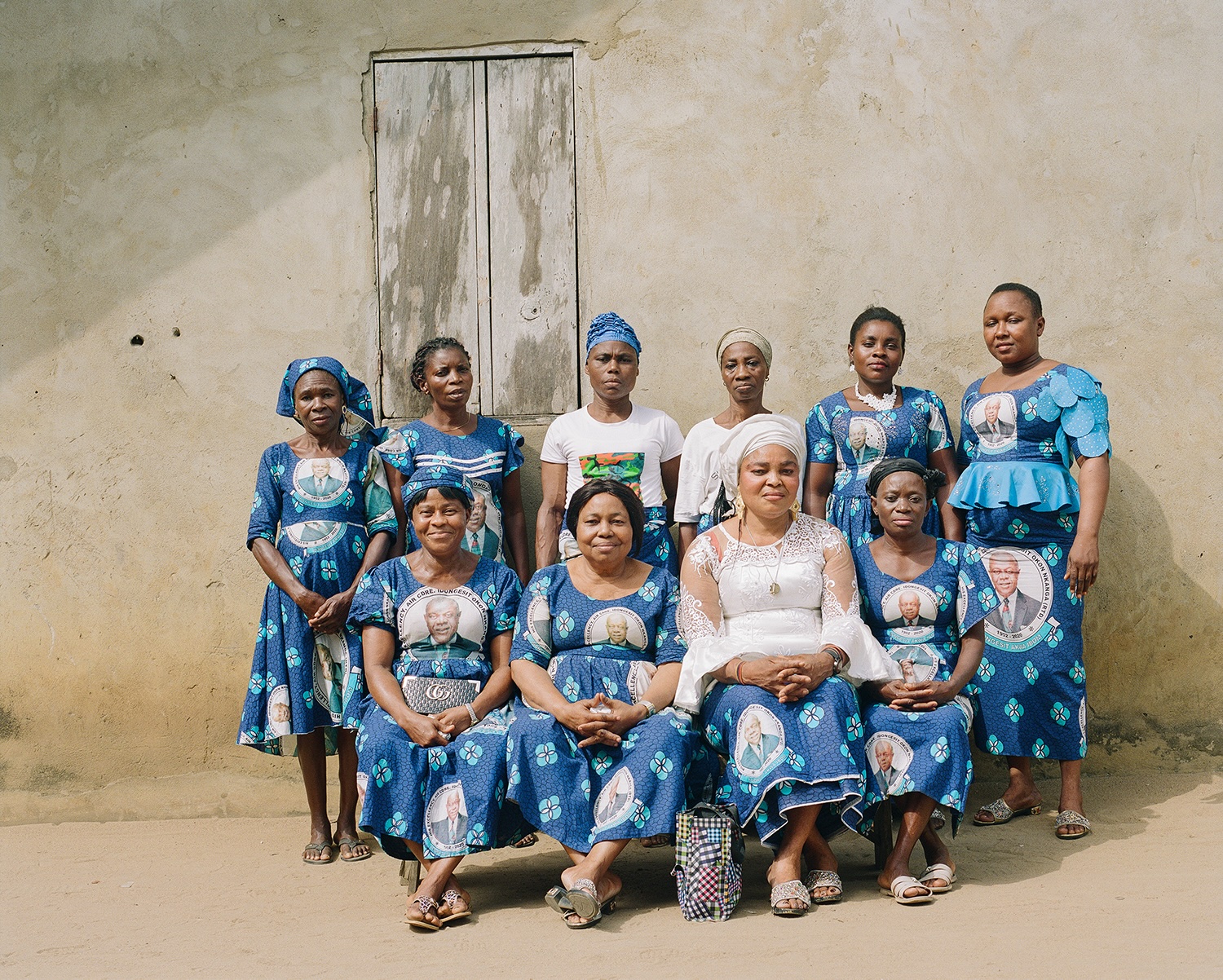By documenting life in Akwa Ibom, Nigeria, the photographer explores grief through art.
In Unyọñ Ufọk, Emily Nkanga explores grief, identity, and home. Through analog photographs, Nkanga captures fleeting moments of everyday life in her hometown of Akwa Ibom, Nigeria. The images act as a time capsule, preserving the beauty of life’s transient moments.
The project began in January 2021, when Nkanga returned home for her father’s burial. After living in the UK for more than seven years, she was deeply moved by the love her father—a beloved patriarch who had “changed the generational story” of their family—received from the community. This inspired her to document life in Akwa Ibom. Over nearly two years, Nkanga photographed local life, capturing everything from governance and monarchy to unsung heroes, including a youth boxing club. The book is a three-part project.
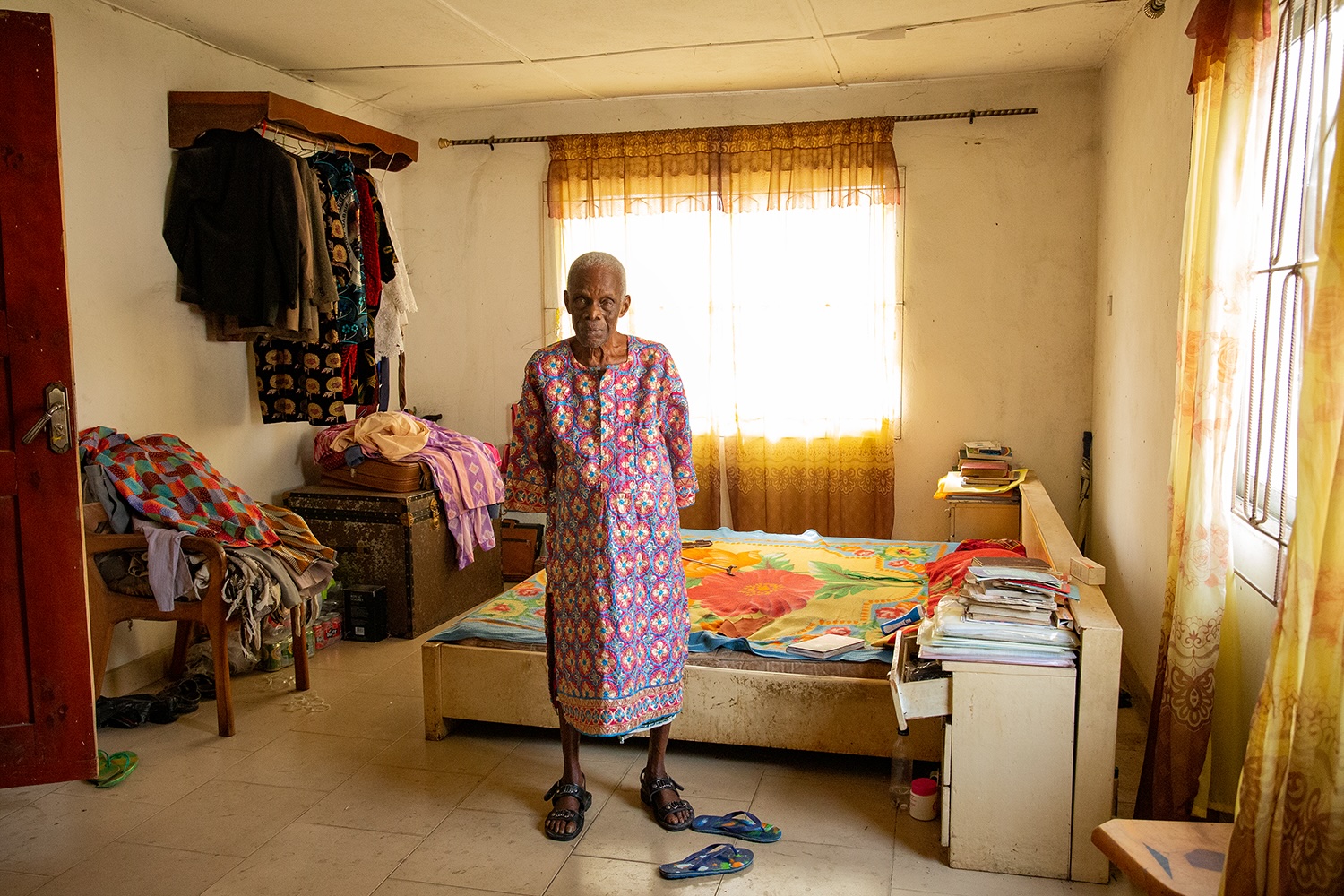
“Nkanga, and her work, remind me of the great Ghanaian photographer James Barnor. After developing his practice in London, Barnor too returned to his familial home, bringing the skills learnt overseas to capture the likeness and lives of neighbours, family, and fellow Ghanaians. Through these tender and stylish works, Barnor documented an evolving place, a nation undergoing major changes. Nkanga achieves a similar homecoming, operating on an introspective, communal, and state-wide scale. She captures the people of Akwa Ibom somewhere in the blurred midpoint between documentary and street portraiture and has no interest in unblurring that line.”
—Isaac Huxtable, writer and curator
Among the subjects documented are members of traditional music bands, the Ikemesit Cultural Group and Starlight Cultural Group. “In traditional Ibibio society, music is seen as a cohesive and spiritually potent force,” Nkanga writes. The book includes portraits of band members with their instruments—a metal gong akankang, bamboo block ntakrok, rattle nsak, and more. This connection to music reflects Nkanga’s background, having worked with Sony Music, Universal Music, and Warner Music.
Boxing
Another focus is the Akwa Ibom state boxing team. Nkanga’s photographs document the dedication of two coaches, one a former Olympian, who train young athletes. Their story is further explored in Nkanga’s documentary Reaching for Gold, featuring two female boxers, Dorcas Onoja and Idara Udoette. The book includes portraits of the team and their coaches, capturing moments of discipline and community.
The book also explores the Nigerian tradition of mourning. Nkanga photographed individuals wearing commemorative clothing featuring her father’s likeness. These fabrics, used in celebrations and mourning, symbolize shared memory. Nkanga’s father was mourned by local politicians and royalty, including Oku Ibom, “Priest of the Almighty God of Ibibio,” who is the traditional ruler of Ibibioland in Akwa Ibom. The inclusion of these moments underscores the community’s respect for her father and their cultural traditions.
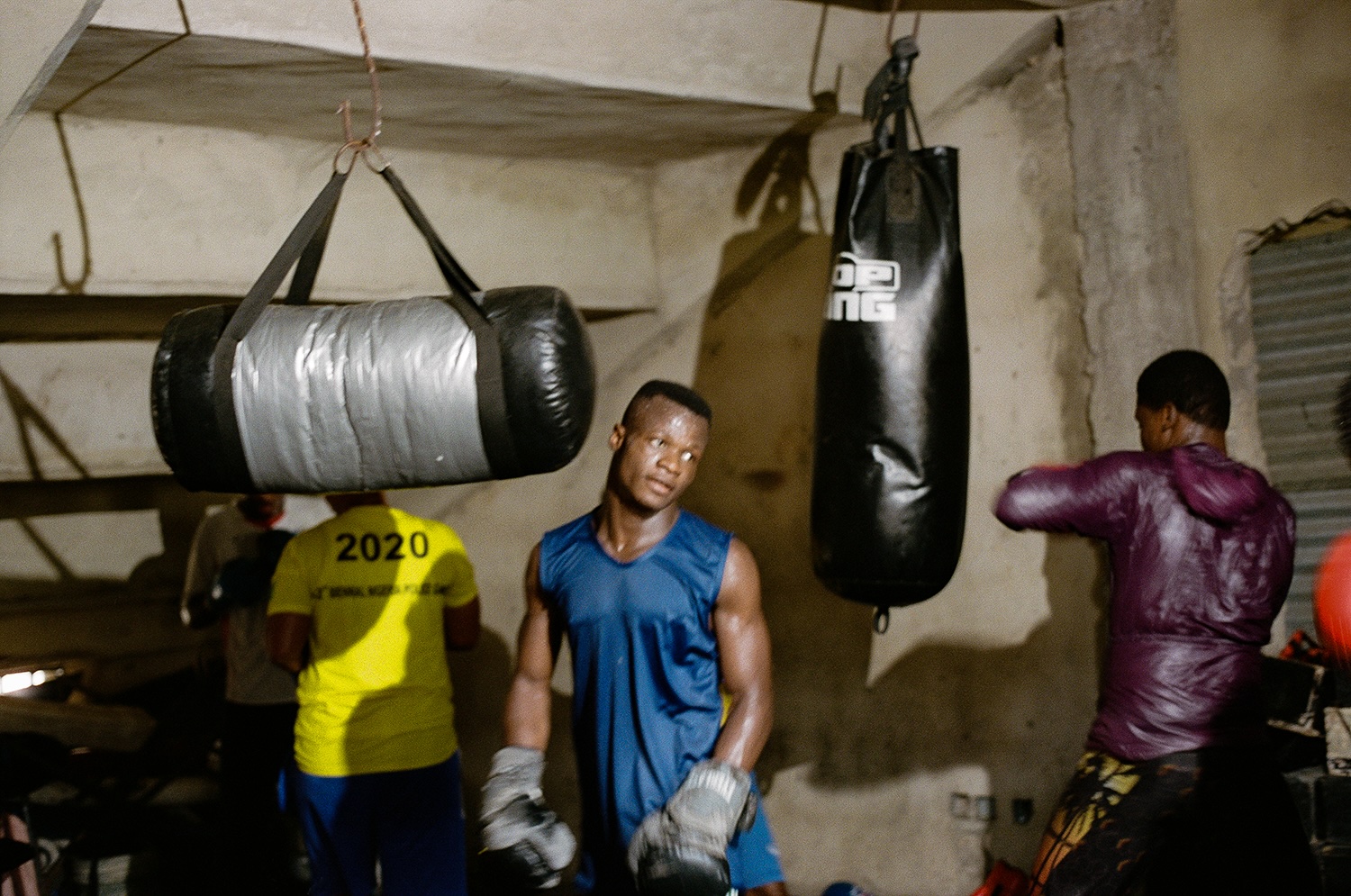
For Nkanga, Unyọñ Ufọk—a project both personal and reflective—became a therapeutic means of transforming grief into art. In Akwa Ibom, she learned that her father had been affectionately nicknamed Idongesit Akwa Ibom, meaning “Comforter of Akwa Ibom.” Through the book, Nkanga crafts a portrait of her father not as a singular figure, but as a composite of the many lives he touched. “It gives a bit of closure,” she reflects, “especially for someone who really loved my work. I feel like if he saw these pictures, he would be happy.”
The book also asks broader questions about identity and belonging. “What is our connection to our homes? What, and where, is home?” Nkanga reflects. Though deeply rooted in Akwa Ibom, her time abroad gives her a distinct perspective, allowing her to document the community with both familiarity and curiosity. Unyọñ Ufọk is a time capsule, a family archive, a regional diary. As community elders pass on, a new Akwa Ibom is forming.
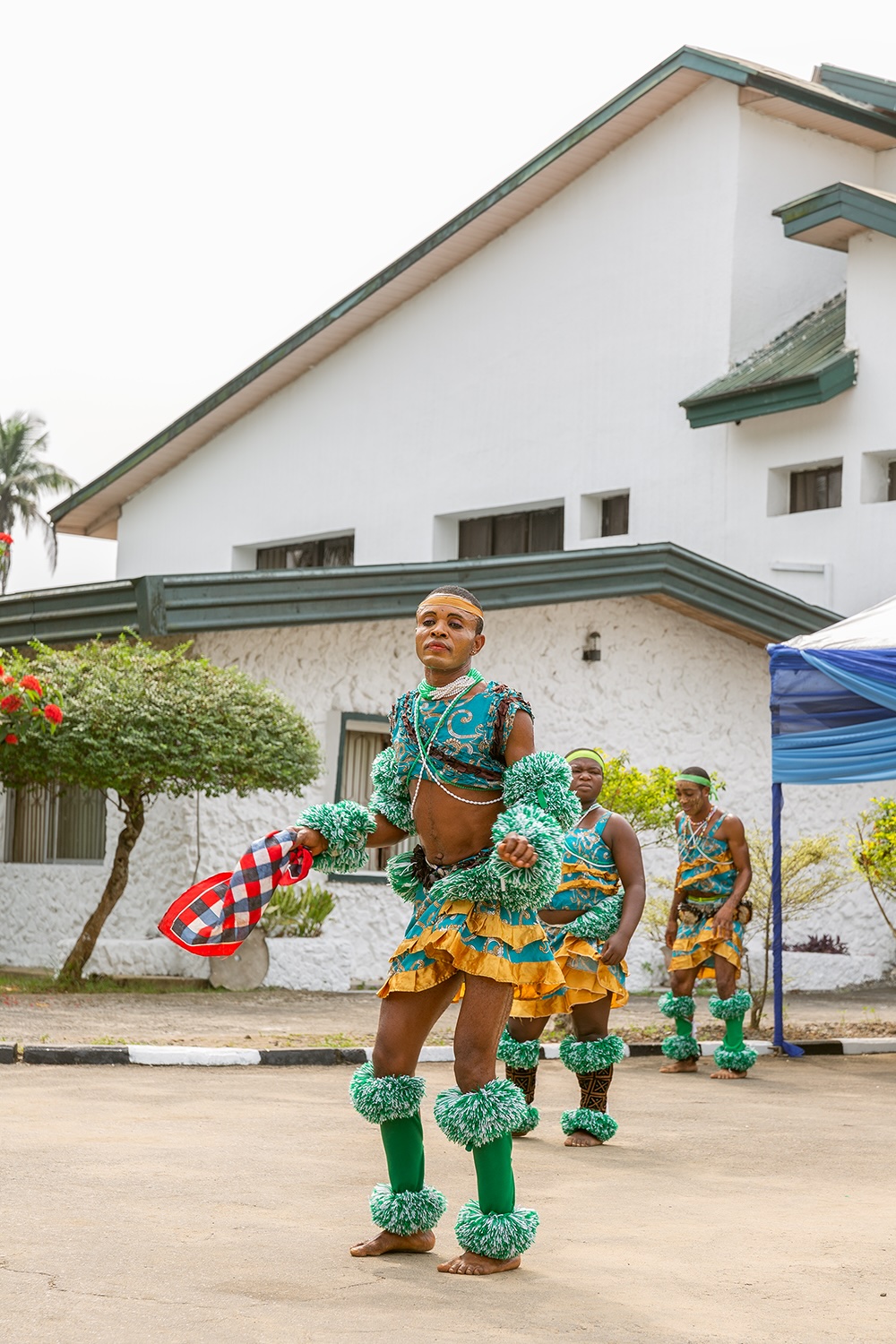
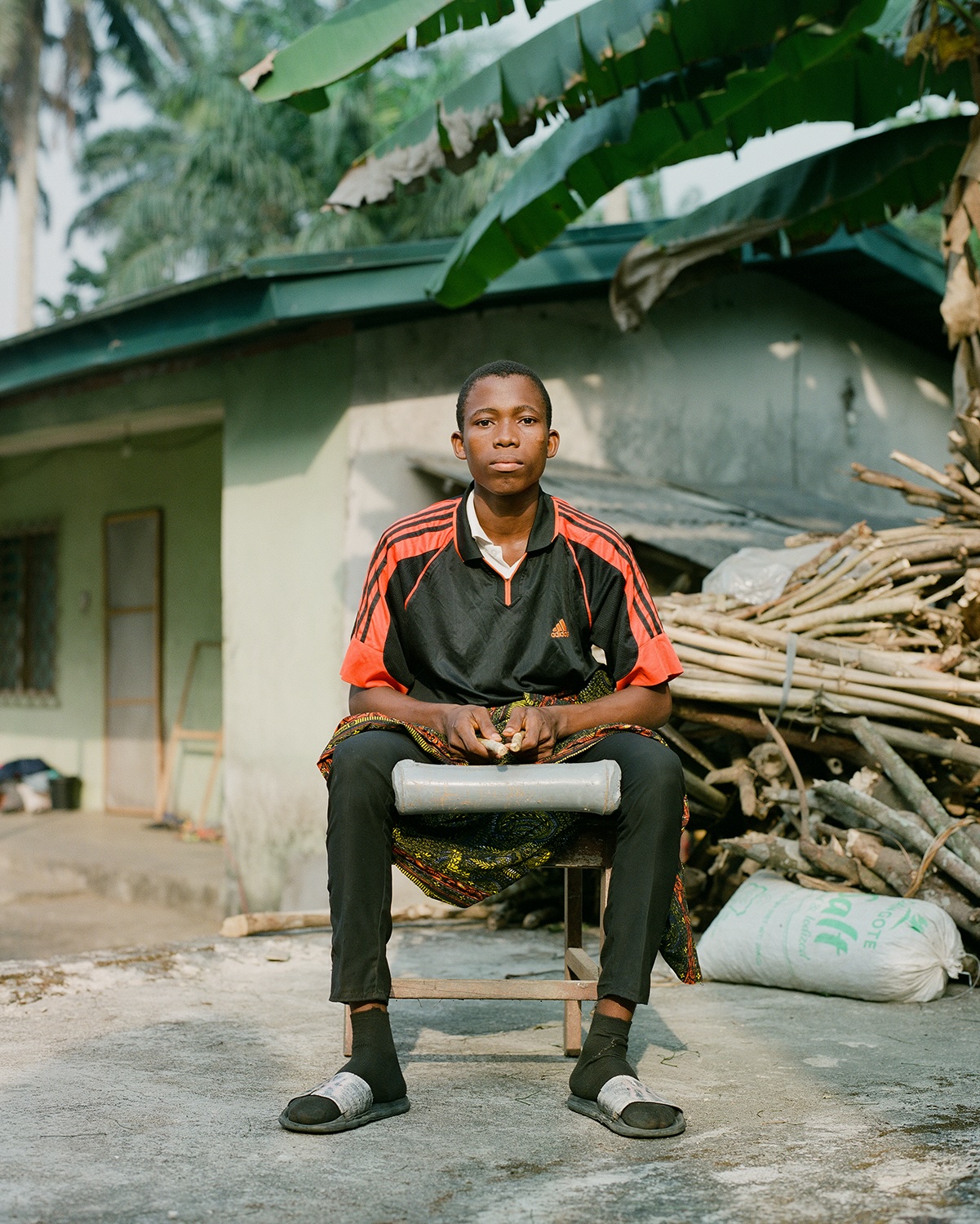
About the artist
Emily Nkanga is a Nigerian-British multidisciplinary artist working across photography and filmmaking. Her work explores the lived experiences of individuals within the complexities of everyday life and popular culture. Her documentary project Narratives of Displacement: Conversations with Boko Haram Displaced Persons in Northeast Nigeria, which documents internally displaced people affected by the Boko Haram insurgency, was published by Taylor & Francis.
Nkanga is also well known for her work capturing prominent artists and athletes, including Thierry Henry, Whoopi Goldberg, Alex Iwobi, and Olamide, and for her collaborations with global companies such as Sony Music, Universal Music, and Amazon Studios. Her work has been featured in a wide range of publications, including the British Journal of Photography, OkayAfrica, and the BBC.
She holds an MA in Filmmaking from Goldsmiths, University of London, and a BSc in Communications and Multimedia Design from the American University of Nigeria.
About the book
Texts and photographs by Emily Nkanga. Essay by Isaac Huxtable. Edited by Debbie Meniru. Design by Hailey Kuckein. Published by GÒKÈ, March 2025. ISBN 978-1-3999-9820-. Hardcover, limited edition of 200 copies.
